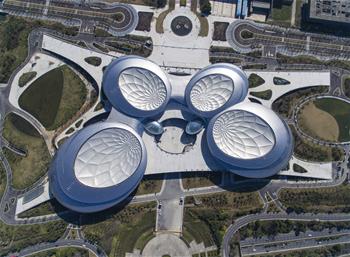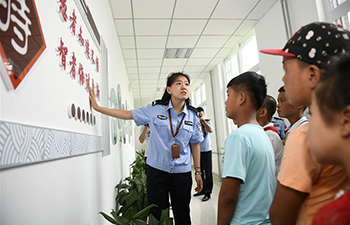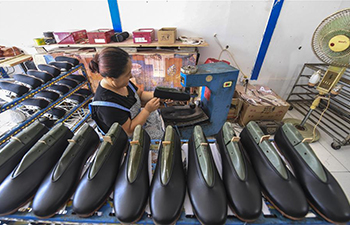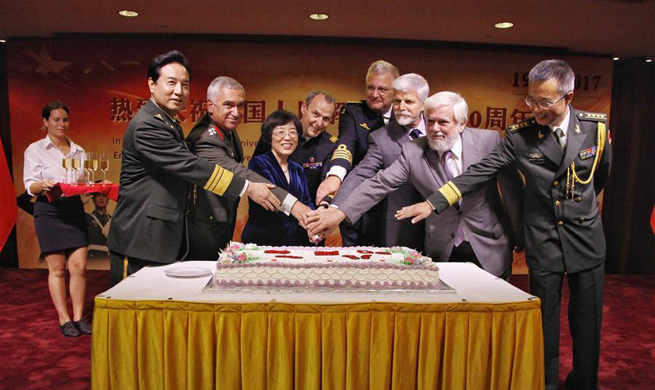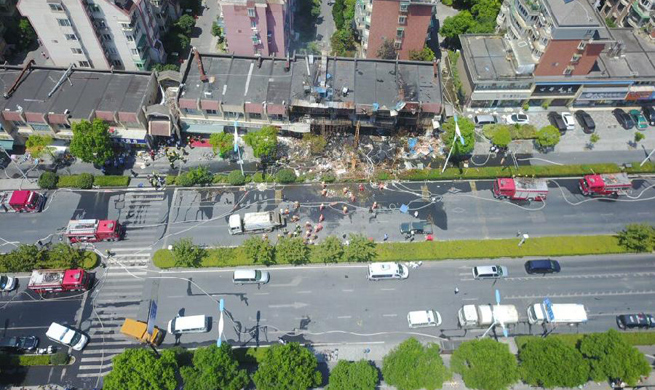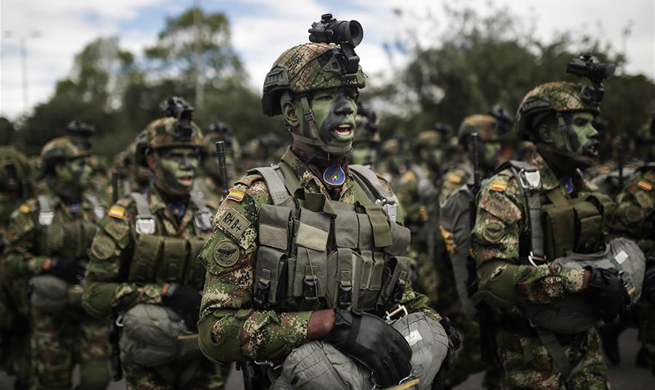TOKYO, July 21 (Xinhua) -- The Okinawa prefectural government will file a fresh lawsuit against Japan's central government on the relocation of a controversial U.S. Marine base within the southern island prefecture, local media said Friday.
The lawsuit is expected to be filed as early as Monday and the Okinawa government will once again try to halt the central government's plans to relocate the U.S. Marine Corps Air Station Futenma in Ginowan to the less populated Henoko coastal region of Nago.
The lawsuit will argue that the government has not secured permission from Okinawa Governor Takeshi Onaga for construction work that will damage rocks on the sea bed, where reclamation work has been going on, sources close to the matter said Friday.
Onaga himself is a staunch opponent of the U.S. base being relocated within Okinawa.
The prefectural government also believes that fishing rights have been granted in the Henoko region, meaning the central government's construction work is infringing on these too.
The Okinawa government has requested the central government to renew its permit to work in the area, which expired in March, although the central government maintains that it does not need permission as legal matters concerning fishing rights have already been dealt with.
The legal action to be taken is also partly based on the premise that the construction work will irrecoverably damage the region's delicate ecosystem by crushing rocks as part of the land reclamation work.
Prefectural opponents to the construction work fear that sediment to be poured inside the seawalls being constructed for the replacement facility in Oura Bay, which according to the central government's plans will eventually see 157 hectares of land reclaimed from waters off the Henoko area and the building of a V-shaped runway, will be extremely detrimental to the environment.
The nationwide liaison council Opposition to Henoko Soil Hauling, in a study meeting held recently, concurred that not only does the central government's reclamation work go against the National Biodiversity Strategy of Japan, it also disturbs this ecosystem peculiar to Okinawa, local media reported.
In addition, Advisor Ichiro Yuasa said prefectural regulations need to be effectively utilized to prevent the introduction of invasive species through land reclamation materials. He pointed to an example of brown widow spiders, a known invasive species, being found in soil hauled from Amami Oshima for the construction of Naha Airport's second runway.
Co-representative of the group, Etsuko Abe, said that the central government, "which should be striving for environmental conservation in accordance with the National Biodiversity Strategy, is acting inconsistently with its own strategy by pressing forward with conduct that is environmentally destructive."
Furthermore, the local Anti-Helicopter Base Council Diving Team Rainbow, has warned that the Porities lutea coral, which is part of the reef and just 20 meters away from the tip of the seawall, is likely to be destroyed by rocks being thrown into the ocean due to the construction.
One of the representatives of the team said that after photographing the coral reef it was clear that if the seawall construction continues then the coral and the fish in the region will be wiped out.
The waters of Oura Bay are also the last home of the endangered Japanese dugong, which is a large marine mammal and cousin of the manatee. Environmentalists are certain of the species' extinction if the central government's construction continues.
The return of the land to Okinawa used for the Futenma base was agreed in 1996 between the United States and Japan and in 2006 both sides inked a deal, part of which included transferring the airfield to the Henoko region on the island.
There has been staunch opposition to the relocation from local officials and residents of Okinawa who bear the burden of hosting the majority of U.S. military facilities in Japan.
Anti-U.S. sentiment has been also rising on the tiny island in the wake of a number of heinous crimes committed by U.S. base-linked personnel.
However, the central government has maintained that shifting the base to Henoko remains "the only solution."




